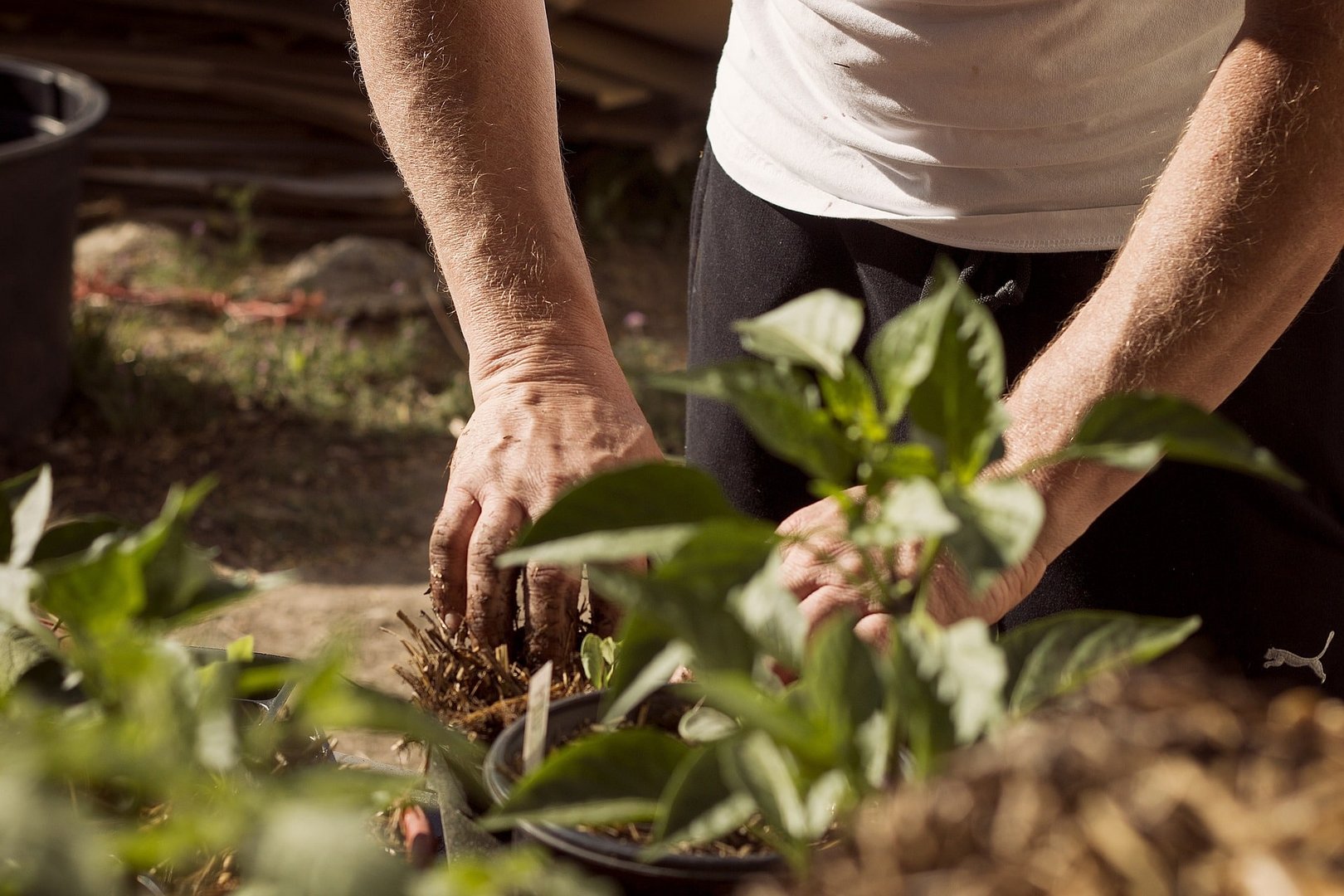By Olivia Skordi
September is recognised as the month of Alzheimer’s, with September 21 dedicated as an awareness day of Alzheimer’s disease, targeting communities to raise awareness and educate the public regarding marginalised people who have Alzheimer’s disease and other dementias. Also, this day supports families, partners, and friends who live with people with dementia in the community to create an accepting environment for their loved ones. This year’s theme for Alzheimer’s disease is ‘Never too early, never too late’, targeting the importance of educating ourselves by identifying the risk factors and taking measurements to delay or even prevent dementia.
For individuals living with Alzheimer’s disease, connecting with nature can be transformative. Engaging in activities in nature, particularly gardening, has shown remarkable benefits for those facing the challenges of Alzheimer’s. This article will explore how interacting with nature and practising social permaculture through gardening can provide comfort, purpose, and improved well-being for those with Alzheimer’s.
The calming influence of nature
Nature serves as a soothing ingredient to people with Alzheimer’s. Studies have shown that exposure to nature can lower cortisol levels, the stress hormone, that can lead to improved mood and decreased agitation. Caregivers and family members have reported that their loved ones with Alzheimer’s tend to be calmer and more content after spending time outdoors or engaging in gardening activities. Permaculture gives comfort to the mind by stimulating the senses as a hands-on process.
Sensory perception
Gardening offers a multi-sensory experience. Planting seeds, tending to plants, and harvesting vegetables or flowers can provide a sense of accomplishment and purpose. These activities encourage individuals with Alzheimer’s to use their hands, engage their sense of touch, and enjoy the visual appeal of the garden. Engaging with nature can help stimulate the senses, providing individuals with Alzheimer’s the opportunity to connect with the world around them. The textures of soil, leaves, and petals; the vibrant colours of flowers; and the sounds of birds chirping all offer sensory experiences that can awaken memories and emotions, improving the decline in sensory perception.
Many people practising permaculture express that the process gives them pleasure and a sense of connection, settles the mind and the body, and contributes to physical and mental health. This is why permaculture-related consciousness and suitable practices can be used effectively in any community, including vulnerable adults.
Social Connection and Permaculture
Engaging in gardening activities can also foster social interaction, a vital aspect of social permaculture. Caregivers, family members, and friends can participate in the gardening process, creating opportunities for meaningful connections. Sharing the experience of planting and nurturing a garden can strengthen bonds and create cherished memories for both individuals with Alzheimer’s and their loved ones. Social permaculture principles promote collaboration, shared resources, and a sense of belonging. In the context of Alzheimer’s care, this means that gardening becomes not only a therapeutic activity but also a communal one, where everyone involved benefits from the social connections formed.
The Social Peas project
The Social Peas project (Social Permaculture: Empowering an Active Society), is an Erasmus+ funded project by the EU. The project is focused on creating permaculture training for professionals working with vulnerable adults, such as people suffering from mental health issues, people with physical and intellectual disabilities and former drug or alcohol users. The project aims to develop and promote a permaculture-based curriculum and educational programme that will help vulnerable communities and experts tackle the issues around physical and mental health. Different activities are occurring throughout the project, including piloting training, creating a permaculture garden in one of the daycare spaces for people suffering from dementia and creating an open e-learning platform for professionals to use as an educational resource.
In conclusion, being outdoors and actively engaging with nature is a process that offers on a personal and communal level a purpose and a great process of learning. The healing attributes of nature are undeniable, for individuals with Alzheimer’s disease, it can be a source of comfort, stimulation, and purpose. As we continue to explore ways to enhance the quality of life for those living with Alzheimer’s, the simple act of tending to a garden reminds us that principles of social permaculture have the capacity to heal, soothe, and bring joy even in the face of adversity. The experience of participating in social work helping vulnerable groups like people with Alzheimer’s disease and using permaculture helps both the vulnerable people and the community to work in groups to be more connected and have more sustainable lives.
Olivia Skordi, is a Project Manager at Friends of the Earth Cyprus, responsible for the Social Peas Erasmus Project.







Click here to change your cookie preferences